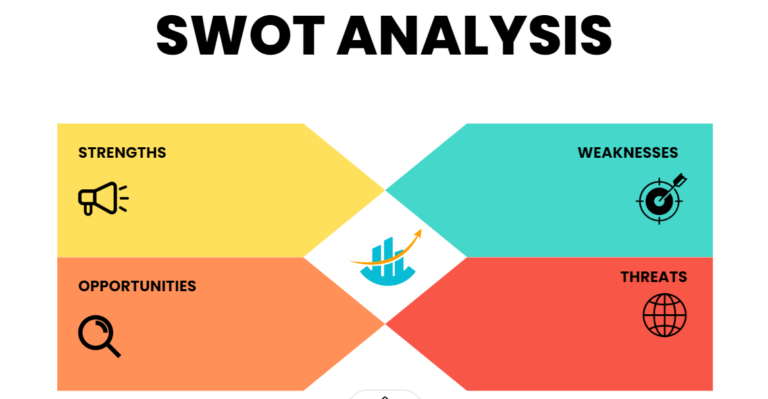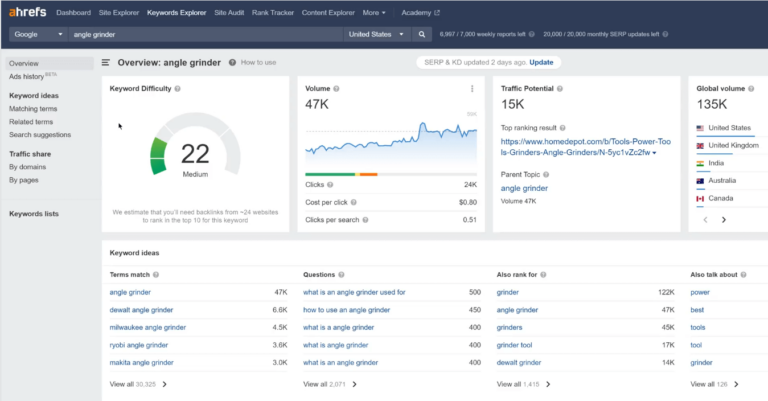Feeling lost when it comes to digital marketing budgets? Many business owners struggle to balance between proven strategies and make room for experimentation.
This guide offers a plan to help you create an effective budget. We will explore best practices to avoid overspending and make sure you get the highest output from your online marketing.
Table of Contents
10 Considerations to Develop A Digital Marketing Budget
It can be challenging to figure out where to allocate your digital marketing budget. Here you will find 10 simple tips to create a budget that works for you.
1. Outline Your Sales Funnel
Think about your customer’s journey. Where do they first hear about you? What makes them curious about your brand? Why they decide to buy from you? Once you understand these key interactions, you can spend your money wisely on things that get results.
2. Factor in Operational Costs
You need to consider non-negotiable expenses like website hosting, subscriptions, platform fees, and taxes. Knowing these fixed costs helps determine the remaining budget for other activities.
3. Analyze Past Performance
Take a look at the results from past campaigns. Did campaigns achieve goals? Did you see a return on investment? Looking back at what worked and what didn’t helps you spend smarter in the future.
4. Define Your Goals
Clearly defined goals are essential for allocating the budget effectively. What do you aim to achieve? Increase leads, conversions, or sales? You should set up your budget based on the goal you want to reach.
5. Detailing The Specifics
Once goals are set, dive deeper. Break down the steps you need to take to reach your goal. Mapping out your marketing plan in detail will help you figure out where to put your money.
6. Choose the Right Channels
There are so many marketing channels out there, but not all of them are necessary for every brand. It’s important to identify the most effective channels where you can find most of your consumers. You can then spend money on the short-listed channels.
7. Determine Activity Costs
With chosen channels, research the costs of specific marketing activities within each. For example, consider social media ad costs and post-promotion fees. Ensure activities align with your budget and goals.
8. Learn from the Competition
Competitors can offer valuable insights for budget allocation. Analyze their marketing methods and how they attract audiences and drive sales. Studying their strategies can inform your channel and campaign choices.
9. Develop Your Marketing Plan
Based on your goals, required tools, and target audience channels, you need to make a monthly or yearly plan. It’s good to have monthly plans if you have a small budget to spend on.
10. Continuously Measure Results:
Keeping an eye on your spending is important even after setting a budget. This helps you find any issues between what you planned and what actually happened.
Think about why things might have cost more or less than expected. By learning from these differences, you can adjust your budget for next time, making it work even better for you.
How Much Is Enough for Spending in Digital Marketing?
While setting up your digital marketing budget, you need to allocate money to get sure results from your investment and also need room for trying out new things.
A common starting point is to allocate 7-10% of your total revenue for marketing, with half going specifically toward digital efforts. However, this is just a suggestion. Every business is unique, so you need to adjust this based on your specific goals and industry.
It’s important to talk to your team and leadership to understand your company’s standard practices and expectations when it comes to marketing budget allocation.
What Would Happen If You Can’t Allocate Budget Properly
Creating a precise budget is crucial for any organization. You might face negative consequences if you fail to do so.
Messy budgets hurt your reputation: If you mess up the budget, people won’t trust you to handle money well. It might create a bad impact on your department’s image and it will also be hard for you to get approval for your future projects.
Bad budgets stop you from reaching your goals: If you don’t budget enough, you won’t have the resources you need to achieve your goals. For example, if you don’t budget enough for advertising, you might not reach as many people as you want.
Money problems damage your reputation: A bad budget can lead to financial problems, like spending too much money or not being able to pay bills on time. This can hurt your organization’s reputation and whenever this happens people will be less likely to trust you.
Best Practices for Smart Spending
- Dedicate a significant portion of your budget to creating valuable content that attracts your target audience. Your content could include blog posts, social media content, videos, or other engaging materials.
- Consider using software or resources that make your digital marketing efforts more impactful. These tools can help you manage tasks, analyze data, and track your progress.
- Online tools can be helpful in estimating your budget based on your industry and specific goals. These tools can provide valuable insights as you decide on the budgeting process.
Wrap Up
Now you know how to develop a digital marketing budget and create an outstanding marketing plan that brings results. Remember, digital marketing is not a static process. So, for every change, you need to modify your budget accordingly.
Wish you the best of luck for your upcoming marketing campaign!






